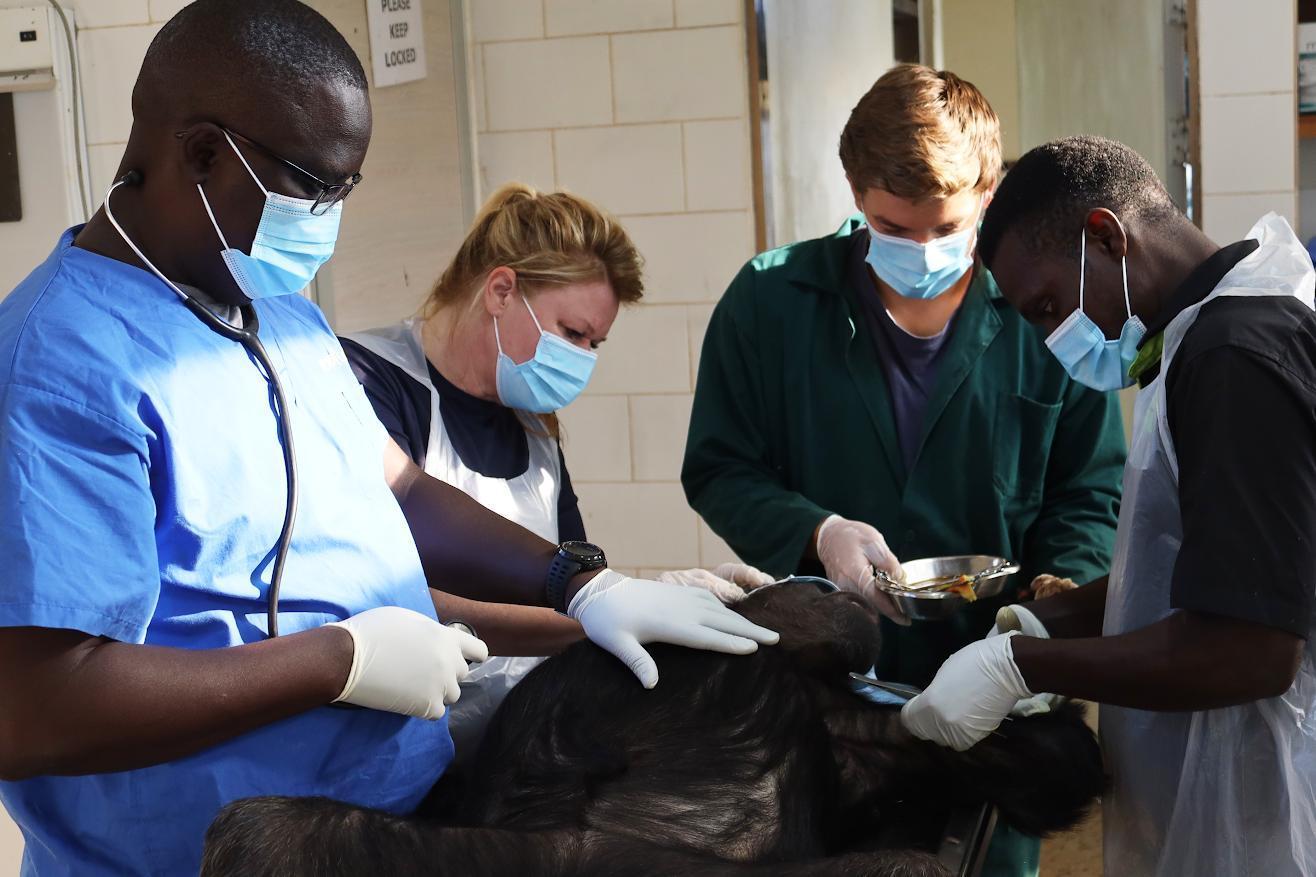Africa-Press – Uganda. As the world commemorates the World Chimpanzee Day held every July 14, the Chimpanzee Sanctuary and Wildlife Conservation Trust (Chimpanzee Trust) has reaffirmed commitment to protecting Uganda’s great apes.
This year’s day is held under the theme, “Celebrating Progress, Securing the Future” to capture both the significant strides made in chimpanzee conservation and the urgency of protecting their future.
According to Dr.Joshua Rukundo, the Executive Director of the Chimpanzee Trust, their conservation journey began over 26 years ago with a promise to 19 rescued chimpanzee on Ngamba Island, noting that they have never looked back.
“Today, we renew that promise—not only to those in our care, but to every chimpanzee living in Uganda’s wild forests,” Dr.Rukundo said.
He explained that currently, Ngamba Island Chimpanzee Sanctuary is home to 54 orphaned and rescued chimpanzees as well as programs for the protection of wild chimpanzees through awareness creation, community engagement and habitat protection and restoration, reflects on nearly three decades of groundbreaking conservation work while launching ambitious new strategies to protect humanity’s closest living relatives.
According to Dr.Rukundo, from its origins in the late 1990s as a haven for chimpanzees rescued from circuses and the illegal pet trade, Ngamba Island Chimpanzee Sanctuary has become a world-class facility.
“Now home to an aging population, Chimpanzee Trust is enhancing its care protocols with specialized veterinary attention for senior individuals. In a significant step to manage the sanctuary population and ensure space for future rescues, the veterinary team is adopting a new surgical implant method for contraception during the annual health checks. This innovative approach is expected to be more effective, reinforcing the sanctuary’s no breeding policy and its mission as a safe refuge,” he said.
He added that their conservation program has evolved from ex-situ care to a robust in-situ field program in the Albertine Rift.
This strategic shift, initiated in response to the pet trade, he said, led to its virtual eradication by 2012.
“A landmark achievement was the pioneering of Uganda’s first Payment for Ecosystem Services (PES) project, a model so successful it influenced the revision of the National Environment Policy to include PES as a key conservation financing mechanism.”
According to Dr.Rukundo, Chimpanzee Trust’s work is rooted in the belief that conservation is a shared responsibility.
“What began with engaging island communities has grown into a powerful movement across the Albertine Rift. The Trust established the region’s first community education center, fostered
women’s handicraft and enterprise groups, and developed a revolutionary community monitoring program. This program employed 25 local youth as conservation ambassadors a model now replicated by other NGOs. As a testament to its lasting impact, five of these former monitors have since been elected to leadership positions in their local governments.”
He added that Chimpanzee Trust has continued to drive education and research , growing a local island outreach to a national and global force, promoting the understanding and appreciation of chimpanzees through school programs, community dialogues, and digital platforms.
“The Trust is also a hub for vital research, collaborating with institutions like the University of Portland (UK) and Berkeley University (USA). Its work has featured in numerous high-impact publications, including a highly-cited 2024 Wiley publication on behavioral research, contributing invaluable knowledge to global primate conservation.”
He added that the lessons from the COVID-19 pandemic have reinforced the interconnectedness of human, animal, and environmental health.
“The Trust is scaling up its “One Health” initiatives in the landscape to create integrated systems that protect both chimpanzees and human communities from zoonotic diseases,” he said, adding that they are committed to integrating technology to enhance education and advocacy efforts, reaching a wider audience and creating more immersive learning experiences.
The Future
Moving forward, Dr.Rukundo called for concerted efforts to conserve the environment for chimpanzees.
“The future of chimpanzees is inextricably linked to the well-being of the communities who share their habitat,” he said.
“Our vision is a Uganda where forest corridors are restored, where communities see tangible benefits from conservation, and where the majestic chimpanzee is protected for generations to come. That is the future we are working to secure.”
For More News And Analysis About Uganda Follow Africa-Press






